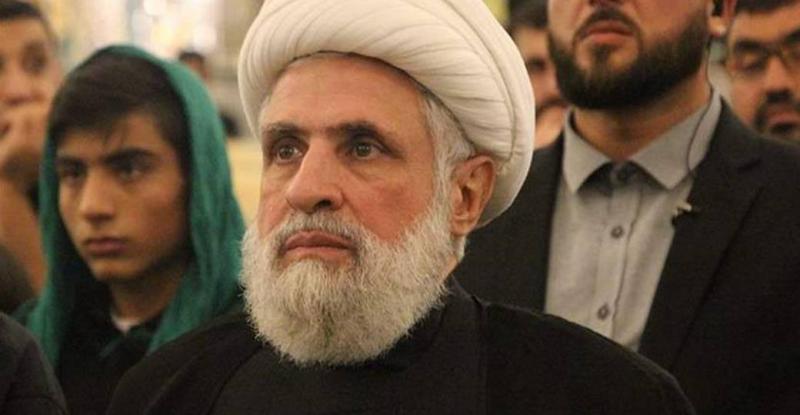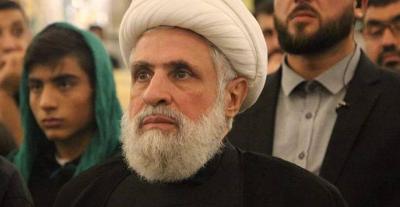The Deputy Secretary-General of Hezbollah, Sheikh Naim Qassem, affirmed in a speech delivered at the "United Against Normalization" conference today that Hezbollah is a deeply Lebanese national party that defends its land and people with strength.
Qassem rejected the notion of international protection for the country, indicating that such efforts were tested in Resolution 425, and that the Israeli invasion was only repelled through resistance. He also mentioned that Israel was defeated in the July aggression due to the jihad of the resistance fighters. Additionally, Qassem pointed out that while Hezbollah resists, it simultaneously contributes to state-building and serving the people. He called for prioritizing the national interest in finding compromises to form a government, warning that without it, Lebanon faces more collapse.
Qassem emphasized that normalization is a betrayal of religion, Arabism, and Palestine, as it signifies abandonment of the cause. He considered normalization to be support for the Israeli expansionist position, recognizing the occupation and legitimizing its existence at the expense of the Palestinian people, asserting that the countries pursuing normalization and their sponsors will reap only disappointment. He noted that most Arab regimes, particularly the Gulf states, have worked to surround and contain the Palestinian issue, aiming to entrench Israel's existence rather than liberate and restore rights and land.
Sheikh Naim Qassem regarded the normalizing regimes as oppressive systems that stifle voices in their countries and rely on American and Western protection for their oppression. He highlighted that the Palestinian people have rejected the "Deal of the Century" from within Palestine, indicating the role of Arab peoples in nullifying normalization and its effects in their countries, and in devising appropriate means to hinder any impact of normalization on Palestine, underscoring the importance of learning from the steadfast stance of the Egyptian people against Camp David, ensuring normalization has no opportunity to survive in Egypt.
Sheikh Qassem asserted that the solution to normalization lies in being part of the opposing axis, the axis of resistance, supported by the Islamic Republic of Iran, with its central project being the confrontation of the American-Israeli axis, the most prominent issue of which is the liberation of Palestine and Jerusalem from Israeli occupation. He urged the axis to possess all means of strength and armament to the fullest extent, ensuring its fighters are prepared to defend the land and independence. He called for unity in position, support, assistance, and resistance, disregarding their propaganda and media narratives regarding citizenship and its conditions.
Qassem continued by stating, "We are Arab," which means standing with Palestine and its cause, and cooperating for the independence of all our countries, supporting Palestine and its people, and standing with them in the field, for their sake and for ours. Whatever has afflicted them by the germ of Israel has inflicted bitterness, occupations, and chaos upon Arabs and Lebanon; it is our duty to stand with them to stand with our country and our people."
He further explained that at the same time, "We are Islamic," emphasizing unity with Iran, the people, Imam Khomeini, Imam Khamenei, and the "Islamic Revolutionary Guard Corps," along with the countries and peoples of the Islamic world suffering from the American-Israeli project. He stated that our unity strengthens us and helps one another. No one can replace anyone, nor can one people take the place of another; however, through our cooperation, each people can preserve its uniqueness and beliefs and be capable of defending itself.
He concluded by saying, "At the same time, we are global, aligning with the oppressed of the world, supporting the people of Venezuela and all oppressed peoples where possible. We may sometimes limit ourselves to a stance, but this contributes to the repertoire of confrontation and influence."




